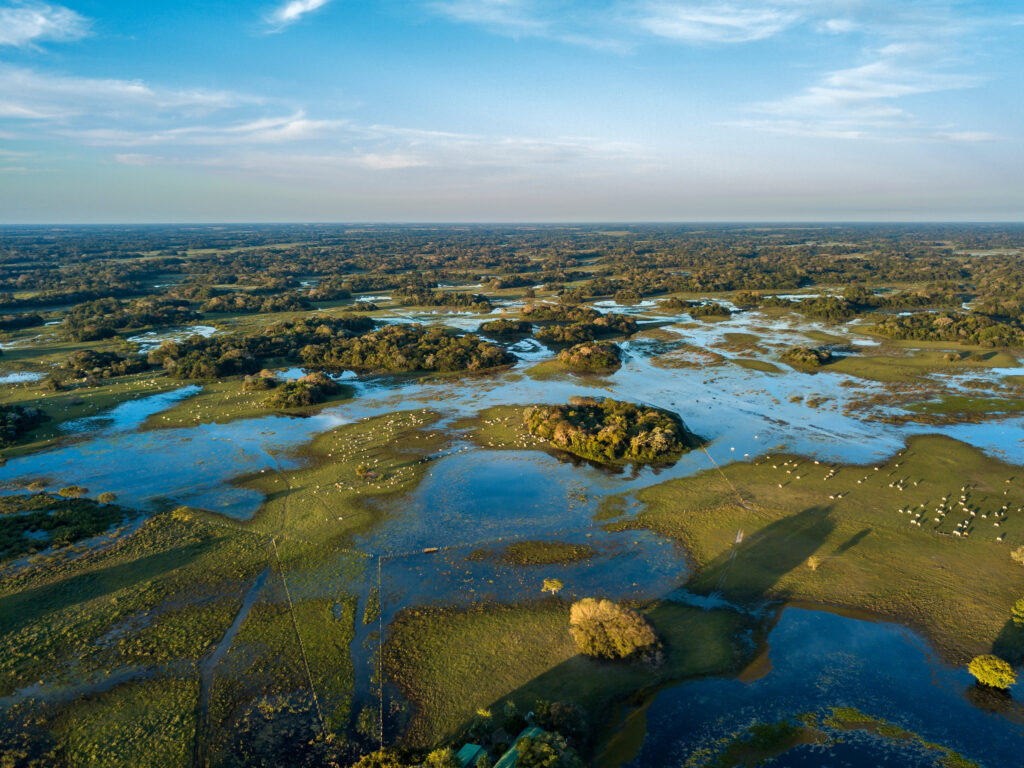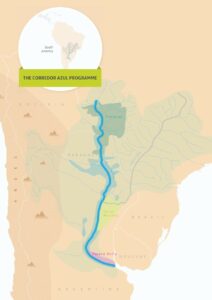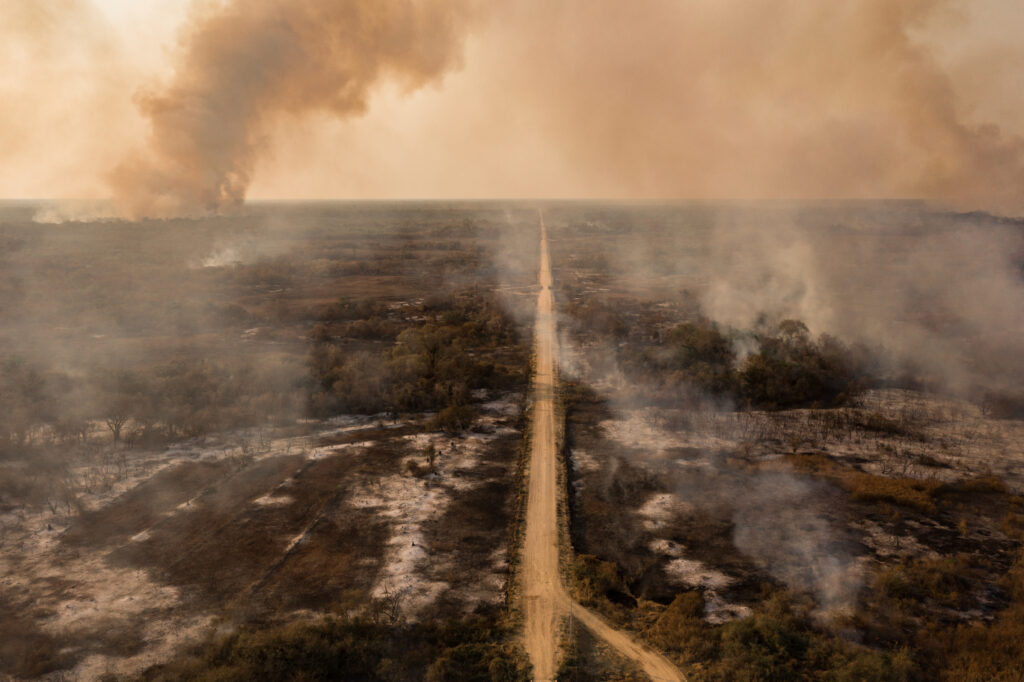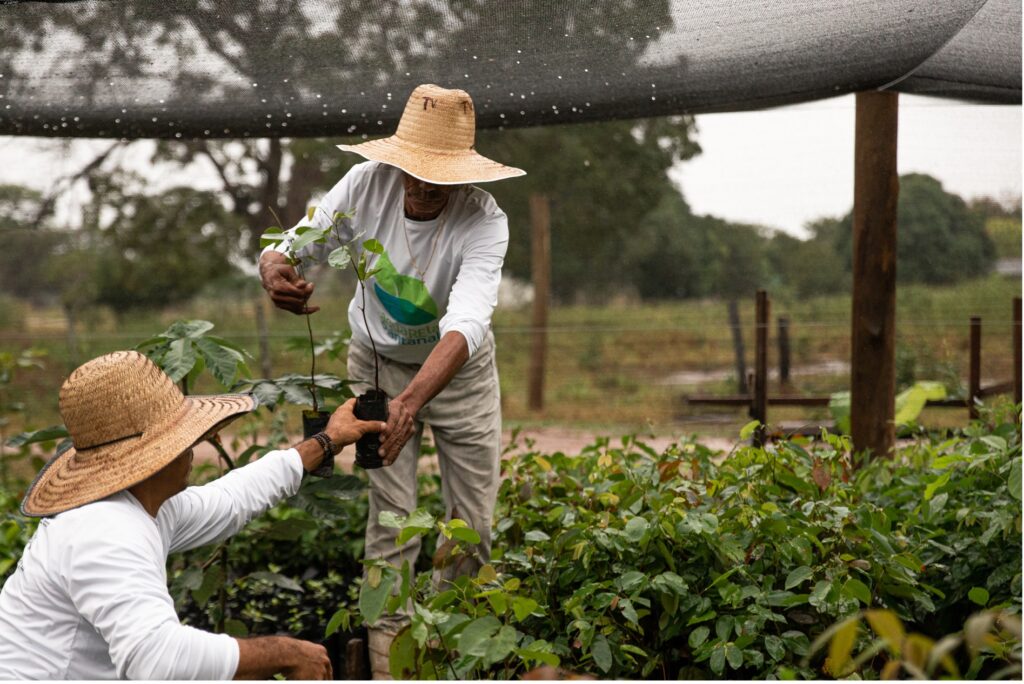
Pantanal fires threaten unique biodiversity
-
Climate mitigation and adaptation
-
Climate change

The Pantanal, in the heart of Latin America, is a giant seasonal floodplain and the world’s largest tropical wetland across Brazil, Bolivia, and Paraguay. It is about the size of England. The rivers overflow their banks, and many lakes, marshes and swamps are formed. The Pantanal is one of the world’s most pristine areas and very rich in biodiversity. Over 4700 animal and plant species call this their home. It slowly releases water into the Paraguay river. As part of the Corredor Azul, The Pantanal is therefore an important source of water for the entire river system.

At 3,400 km in length, the Corredor Azul encompasses the fourth largest wetland system in the world, the heart of which is the Paraná River and the Paraguay River in South America.
But, the Pantanal is burning causing unimaginable devastation to the biome’s flora and fauna. By August 2024, fires had burned 1.22 million hectares, equivalent to half the size of Belgium. The worst fires ever experienced in the area. This is caused by a combination of climate change and human activities.
As a result of this, many animals are suffering or have died. It is estimated that during the severe wildfires of 2020 45% of the estimated population of jaguars has been destroyed. Until then, the Pantanal was home to the second-largest population of jaguars in the world. People’s home and livelihoods are in danger, and clean drinking water is harder and harder to come by.

Rafaela Nicola, Director of Wetlands International in Brazil, said: “The fires in the Pantanal are a warning sign for the need for better monitoring and prevention. Similar to previous fires, we are seeing devastating losses – economic, ecological, social, knowledge, sense of community and belonging. Our response must combine science with local knowledge to put in place long lasting solutions to mitigate the risks fires can pose when out of control.
There is hope. At Wetlands International, we work with partners on the restoration and protection of the Pantanal through restoring landscapes, influencing policy and legislation, and raising awareness on the issues at play.
Together with partners, we implemented an early fire warning system called ALARMES – a tool to quickly and efficiently alert environmental agencies about the size of areas affected by fires, helping them respond more effectively to firefighting efforts. Collaborative and coordinated action between the institutions strengthens the strategies for facing environmental tragedies, helping in decision-making, and minimising the impacts caused by fire.
We are also supporting local firefighters with equipment and training to help mitigate the fires even more effectively. One community we have worked with is the Kadiwéu Indigenous people, for an indigenous community it is quite exceptional to get organized in such a manner, to make use of “modern” resources, and to accept help from people outside the community.

We support local efforts to restore areas in the Pantanal. One such project is “Network of Seedlings and Pantanal Seeds – Aquarela Pantanal”, which includes the three pillars of sustainability: social, environmental, and economic. As a result of this project, local people have learned how to manage nurseries and reforest areas.
Together with local communities, we are initiating new management plans to help better preserve and manage the land. We help farmers transition to a more sustainable way of farming, which reduces the impact on the Pantanal.
We know the Pantanal in Brazil faces significant threats over the next 10 years, primarily due to deforestation, uncontrolled fires, and climate change. Intensified agricultural expansion, particularly for cattle ranching and monoculture crops, is driving habitat loss and fragmentation. The increasing frequency and intensity of wildfires, often exacerbated by human activity, pose a major threat to its biodiversity and water systems. Climate change is expected to alter rainfall patterns, leading to more droughts and reduced water flow, which could disrupt the delicate balance of this unique wetland ecosystem further, endangering wildlife and local livelihoods even more. The Pantanal – the world’s largest tropical wetland – on fire is a symbol of our broken relationship with nature. The time to act is now for people, climate, and biodiversity.
